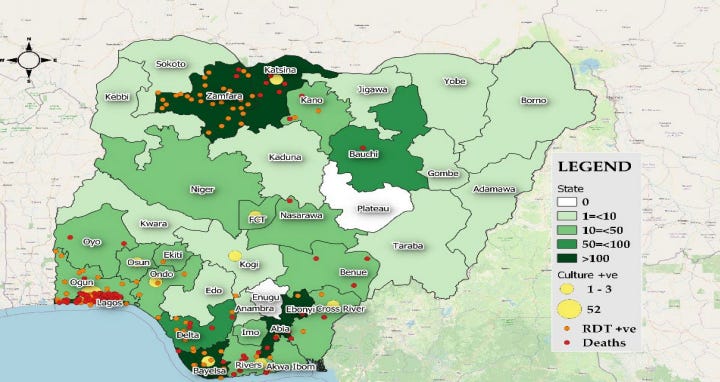The Nigeria Centre for Disease Control (NCDC) has reported 4,809 total cholera cases through July 20 from 35 states. This is an increase of more than 75 percent compared to the same period in 2023 (2740).
This includes 1,144 cases reported in the first three weeks in July, with more than 1000 cases reported in Lagos state.
In addition, the death toll has risen to 156 (CFR 3.2%), an 88 percent increase compared to last year at this time (83).
Lagos state (3,126 cases) accounts for 65% of all suspected cases in the country of the 35 States that have reported cases of cholera.
Cholera has been endemic in Nigeria since it first appeared in 1972. The 1991 outbreak was the most severe on record, resulting in 59,478 cases and 7,654 deaths, a case fatality rate of 12.9%.
Nigeria is prone to a variety of factors that lead to recurring cholera outbreaks. They include lack of access to potable (safe to drink) water. Safe water is needed to maintain good hygiene practices. Other factors are lack of continued surveillance even after the outbreak has ended; flooding; poverty (although currently cholera treatment is free in all government facilities); lack of health facilities; illiteracy; lack of infrastructure for water supply and waste disposal; and conflict, leading to overcrowded conditions for displaced people.
Since the beginning of the year, a total of 128,374 total cholera cases and nearly 2,000 deaths have been reported from 16 African Union Member States.





